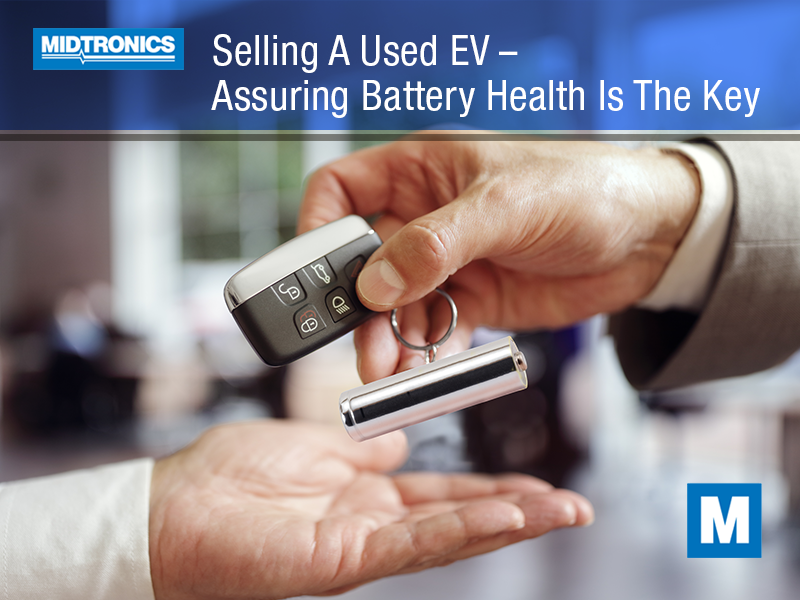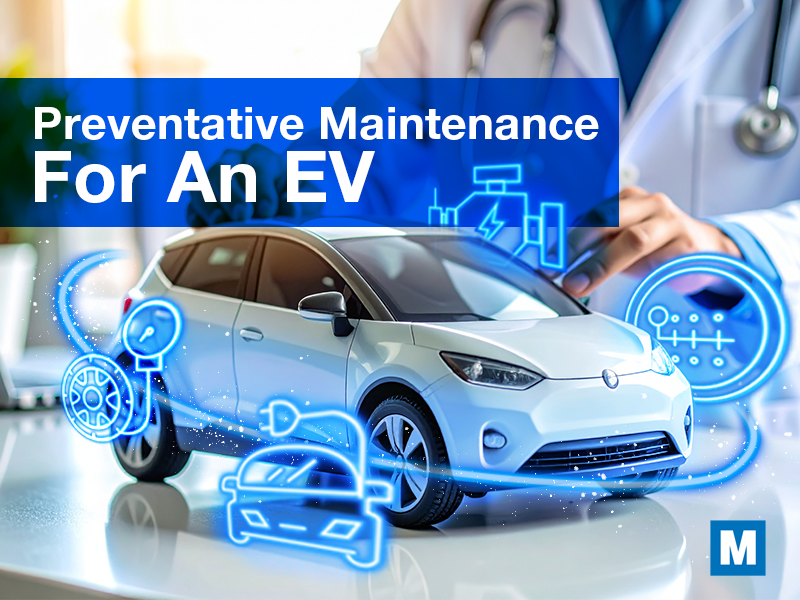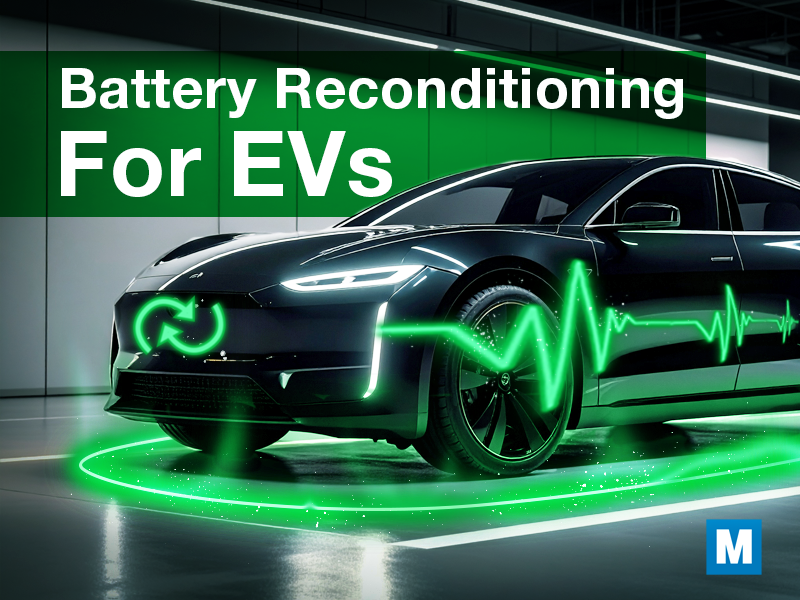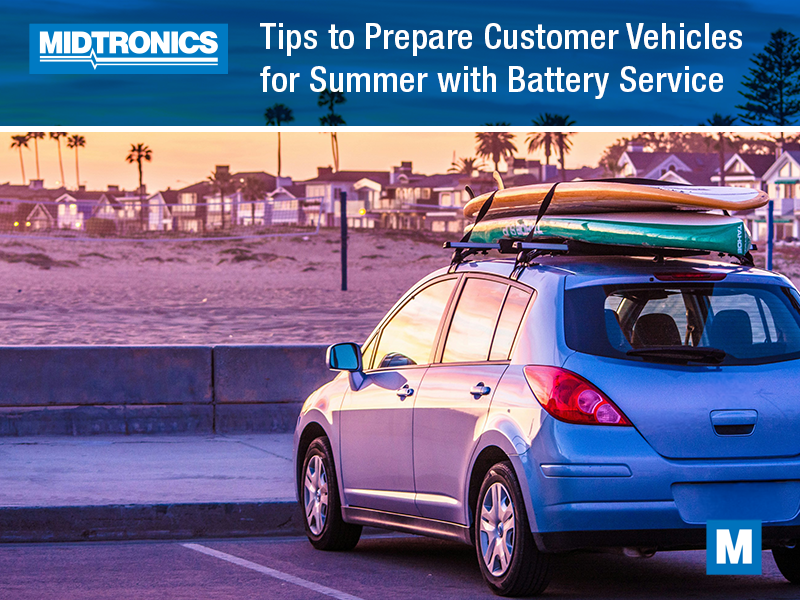The automotive industry is in the midst of a monumental shift towards sustainability, with electric vehicles at the forefront. With increasing public awareness and government incentives, the demand for EVs continues to soar. Now, there are incentives available not just for new EVs but for certain used models as well, making them more attractive for consumers who have been shy at the higher initial purchase price.
For car dealerships and service departments, second-hand EV sales are not just part of the future – they are here and growing. But there’s a hurdle to overcome when you’re trying to get the most out of these vehicles as well as take care of hesitancy related to battery degradation and range. That’s where battery health comes into play more than ever.
Explore the crucial aspect of battery health when selling and reselling used electric vehicles and why it should be a top priority for dealers.
How Long Do EV Batteries Last?
The longevity of EV batteries is a hot topic, often a source of apprehension for potential buyers. Unlike the internal combustion engine, which wears out gradually and predictably, batteries are a newer technology with less of a track record. However, studies consistently show that the average lifespan of an EV battery ranges from 8 to 15 years, depending on factors such as usage patterns and the technology used in the battery pack.
Knowing this, dealerships must provide transparency and evidence of the battery’s condition to reassure buyers of their investment. A battery’s lifespan might be just getting underway for a two or three-year-old model, and consumers may be quite confident purchasing an EV that’s got plenty of good years left.
But what about the used cars that are now five or six years old, or even older? Consumer confidence wanes when they think they could be facing a major repair bill before they have the car paid off.
EV Batteries are Prohibitively Expensive
One of the selling points of EVs is the lower cost of running. Electricity bills are significantly cheaper than filling up on gasoline or diesel. However, the cost of replacing an EV battery is the elephant in the showroom. For vehicles that are out of warranty, the price can be staggering, running into the tens of thousands.
Generally, you can expect an EV battery to cost about $120 to $160 per kWh when the time comes for a replacement. In real life, that means that a car with an 80 kWh battery pack would be on the hook for a replacement of approximately $9,600 to $12,800, and that doesn’t include the many hours of specialized labor that will be required.
This stark reality makes used EVs a risky purchase for those who don’t have visibility into the battery’s health at the time of sale, and it worsens the older the vehicle is. For dealers, this means the difference between a customer walking away and a conversion.
Battery Warranty Coverage is Pivotal for Peace of Mind
Car buyers, especially those looking at pre-owned EV models, highly regard the length of warranty provided from the factory. There’s peace of mind in knowing that, should the battery fail, the costs will be covered by the manufacturer rather than being out of pocket. A manufacturer’s EV battery warranty serves as a beacon of assurance, indicating the seller’s confidence in their product.
For those outside the battery warranty or nearing the end of it, knowing the current health and how close to baseline performance the vehicle is performing is crucial for evaluating the vehicle’s perceived worth and potential future repair costs.
That’s not to say that a vehicle out of warranty is not worth it to second-hand purchasers. Like ICE vehicle shoppers, it’s a matter of weighing the risk of a major repair with the price of the vehicle. It’s a balancing act that the dealership, particularly the salesperson, is going to have to navigate.
Showing Battery Health Proves Vehicle Value
A full and detailed report on battery health is not just about transparency. It’s also about selling power. Showing that the battery is in good shape can dramatically increase the value and appeal of a used EV.
Think about a scenario where a five-year-old EV is for sale, and all things being equal, it’s in average condition for the age. A shopper that’s looking at it with a battery health report showing it’s at 85% capacity of new sees that they’ll have many years of dependable driving without having to worry about a battery failure. But if there isn’t a battery health report, they immediately wonder, “How much life is left?” The assumption has to be that they’ll be on the receiving end of a massive repair bill the moment warranty expires, and the vehicle’s value will be significantly lower to them.
Dealerships that can provide detailed battery health reports gain a competitive edge. They attract and retain a more informed and confident buyer.
The Dealership Can Address Issues Before the Sale
For dealers, knowing the ins and outs of each vehicle’s battery health is a chance to pre-emptively address issues. This proactive approach allows you to offer cars with a ‘clean bill of health’, reducing the chances of a costly return or negative word of mouth while ensuring you’re selling at the highest possible price.
When there’s a used UV that arrives on the lot, there’s an opportunity to replace failed cells, balance the battery modules, or even send the vehicle for warranty repairs if necessary. It’s all about eliminating the potential for objections during the sale, and keeping the purchaser satisfied for the vehicle’s lifespan.
When it comes to the second-hand EV market, there’s more at stake than just the sale of a car. Demonstrating battery health through warranty coverage and detailed reports isn’t just good practice – it’s a sound business strategy. It builds trust, increases value, and positions dealerships as the go-to source for reliable, used electric vehicles. With battery health playing such a defining role, dealerships must invest in the tools and technology to provide this essential service to their customers. Businesses that grasp the importance of battery health in the EV resale market aren’t just ready for the future – they’re shaping it.




